Perfect for some late October reading, check out Howe Library’s newest Horror titles! Featuring new fiction, non-fiction, and graphic novels in the genre. For even more Horror books, be sure to browse our book display in the Howe Library Lobby.
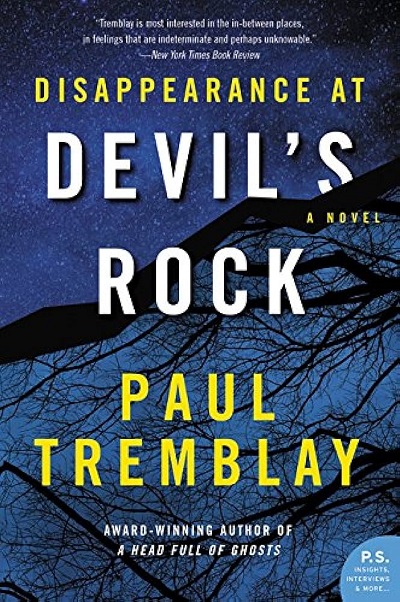
Disappearance at devil's rock: a novel by Paul Tremblay
A family is shaken to its core after the mysterious disappearance of a teenage boy in this eerie tale, a blend of literary fiction, psychological suspense, and supernatural horror from the author of A Head Full of Ghosts.
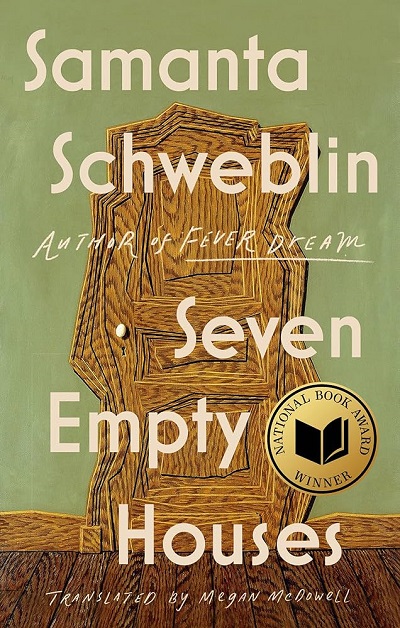
Seven empty houses by Samanta Schweblin; translated by Megan McDowell
The seven houses in these seven stories are empty. Some are devoid of love or life or furniture, of people or the truth or of memories. But in Samanta Schweblin's tense, visionary tales, something always creeps back in: a ghost, a fight, trespassers, a list of things to do before you die, a child's first encounter with a dark choice or the fallibility of parents. This was the collection that established Samanta Schweblin at the forefront of a new generation of Latin American writers. And now in English it will push her cult status to new heights. Seven Empty Houses is an entrypoint into a fiercely original mind, and a slingshot into Schweblin's destablizing, exhilarating literary world. In each story, the twists and turns will unnerve and surprise: Schweblin never takes the expected path and instead digs under the skin and reveals uncomfortable truths about our sense of home, of belonging, and of the fragility of our connections with others. This is a masterwork from one of our most brilliant writers.

Rouge: a novel by Mona Awad
For as long as she can remember, Belle has been insidiously obsessed with her skin and skincare videos. When her estranged mother Noelle mysteriously dies, Belle finds herself back in Southern California, dealing with her mother's considerable debts and grappling with lingering questions about her death. The stakes escalate when a strange woman in red appears at the funeral, offering a tantalizing clue about her mother's demise, followed by a cryptic video about a transformative spa experience. With the help of a pair of red shoes, Belle is lured into the barbed embrace of La Maison de Méduse, the same lavish, culty spa to which her mother was devoted. There, Belle discovers the frightening secret behind her (and her mother's) obsession with the mirror--and the great shimmering depths (and demons) that lurk on the other side of the glass. Snow White meets Eyes Wide Shut in this surreal descent into the dark side of beauty, envy, grief, and the complicated love between mothers and daughters. With black humor and seductive horror, Rouge explores the cult-like nature of the beauty industry--as well as the danger of internalizing its pitiless gaze. Brimming with California sunshine and blood-red rose petals, Rouge holds up a warped mirror to our relationship with mortality, our collective fixation with the surface, and the wondrous, deep longing that might lie beneath.
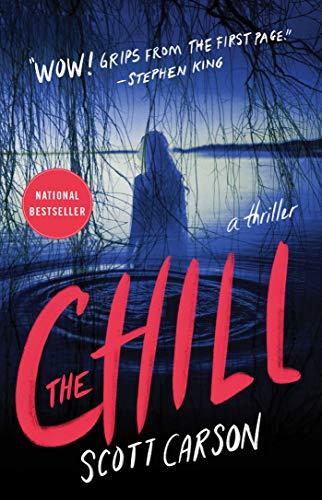
The chill: a novel by Scott Carson
Far upstate, in New York's ancient forests, a drowned village lays beneath the dark, still waters of the Chilewaukee reservoir. Early in the 20th century, the town was destroyed for the greater good: bringing water to the millions living downstate. Or at least that's what the politicians from Manhattan insisted at the time. The local families, settled there since America's founding, were forced from their land, but they didn't move far, and some didn't move at all... Now, a century later, the repercussions of human arrogance are finally making themselves known. An inspector assigned to oversee the dam, dangerously neglected for decades, witnesses something inexplicable. It turns out that more than the village was left behind in the waters of the Chill when it was abandoned. The townspeople didn't evacuate without a fight. A dark prophecy remained, too, and the time has come for it to be fulfilled. Those who remember must ask themselves: who will be next? For sacrifices must be made. And as the dark waters begin to inexorably rise, the demand for a fresh sacrifice emerges from the deep...
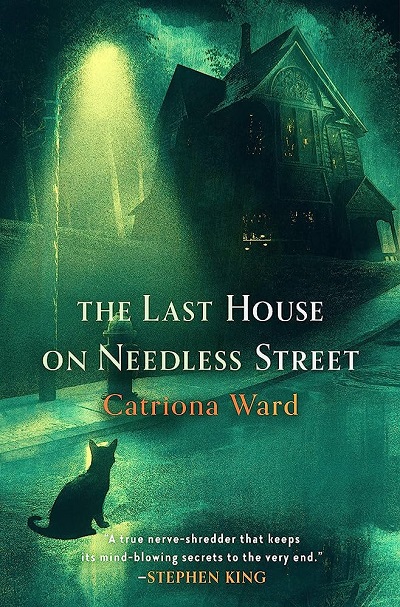
The last house on needless street by Catriona Ward
In a boarded-up house on a dead-end street at the edge of the wild Washington woods lives a family of three. A teenage girl who isn't allowed outside, not after last time. A man who drinks alone in front of his TV, trying to ignore the gaps in his memory. And a house cat who loves napping and reading the Bible. An unspeakable secret binds them together, but when a new neighbor moves in next door, what is buried out among the birch trees may come back to haunt them all.
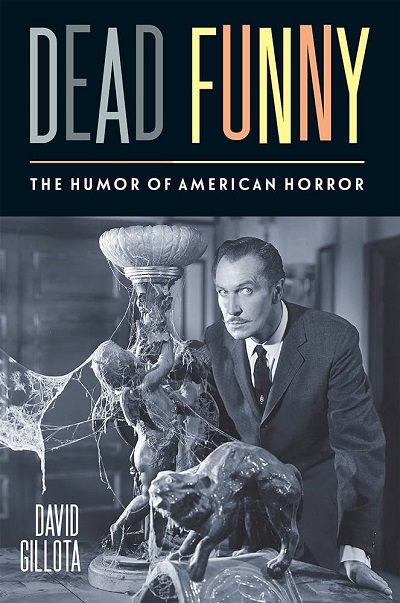
Dead funny : the humor of American horror by David Gillota
Horror films strive to make audiences scream, but they also make them laugh. Little work has been done, however, to explain precisely how horror's humor operates. Dead Funny: The Humor of American Horror offers a road map of key humorous devices that have been prominent in North American horror films since the 1930s. Author David Gillota argues that horror's humor does not operate as simple comic relief" but instead functions in tandem with horror elements. Using humor theory to read horror, Gillota provides insight into several aspects of the genre that have long preoccupied critics: the figure of the monster, imperiled bodies, or gender and racial politics. In doing so, Dead Funny offers analysis of a vast array of films, including classic monster movies, effects-driven splatter films, and recent critical favorites like Get Out and Midsommar. The result demonstrates that humor is and has long been an integral part of the horror genre.
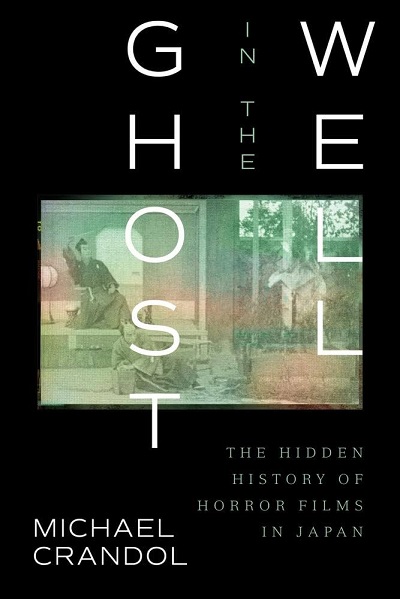
Ghost in the well : the hidden history of horror films in Japan by Michael Crandol
Ghost in the Well is the first study to provide a full history of the horror genre in Japanese cinema, from the silent era to Classical period movies such as Mizoguchi's Ugetsu (1953) and Nakagawa's Tokaido Yotsuya kaidan (1959) to the contemporary global popularity of J-horror pictures like the Ring and Ju-on franchises. Michael Crandol draws on a wide range of Japanese language sources, including magazines, posters and interviews with directors such as Kurosawa Kiyoshi, to consider the development of kaiki eiga, the Japanese form meaning 'weird' or 'bizarre' films that most closely corresponds to Western understandings of 'horror'. He traces the origins of kaika eiga in Japanese kabuki theatre traditions, showing how these traditional forms were combined with the style and conventions of Hollywood horror to produce an aesthetic that was both transnational and peculiarly Japanese. Ghost in the Well sheds new light on one of Japanese cinema's best-known genres, while also serving as a fascinating case study of how popular film genres are re-imagined across cultural divides.
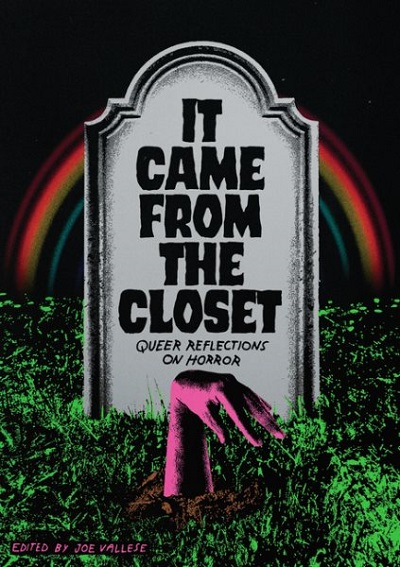
It came from the closet : queer reflections on horror edited by Joe Vallese ; interior illustrations by Bishakh Som
Twenty-five narrative essays by contemporary LGBTQ writers reflecting on queerness in horror film, from Hitchcock to HALLOWEEN.
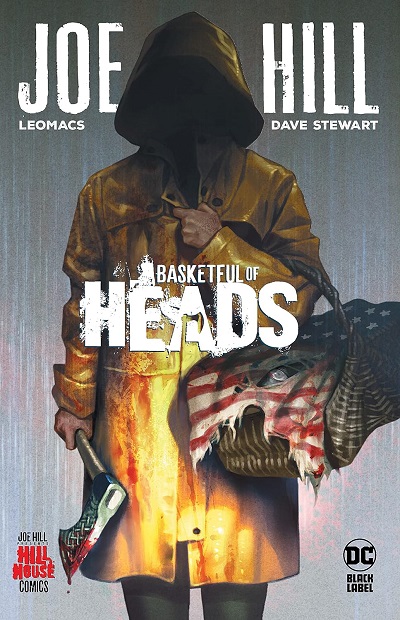
Basketful of heads by Joe Hill
June Branch visits her boyfriend, Liam, on Brody Island for a relaxing last weekend of summer. After an escaped group of criminals breaks into the house that June and Liam are watching, Liam is taken by them. June grabs a strange Viking axe and flees from the intruders. When one of the attackers finds her, she swings the axe and takes off his head, which rolls away and begins to babble in terror. For June to uncover the truth, she'll need to hear the facts straight from the mouths of her attackers, with ... or without their bodies attached.
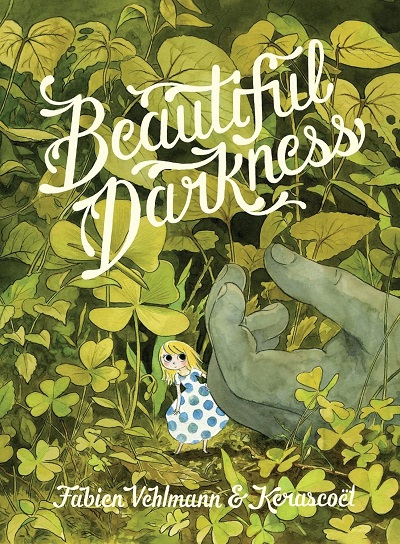
Beautiful darkness by Fabien Vehlmann & Kerascoët
A group of little people find themselves without a home in this horror fantasy classic. Newly homeless, a group of fairies find themselves trying to adapt to their new life in the forest. As they dodge dangers from both without and within, optimistic Aurora steps forward to organize and help build a new community. Slowly, the world around them becomes more treacherous as petty rivalries and factions form. Beautiful Darkness became a bestseller and an instant classic when it was released in 2014. This paperback edition of the modern horror classic contains added material, preparatory sketches, and unused art. While Kerascoët mix gorgeous watercolors and spritely cartoon characters, Fabien Vehlmann takes the story into bleaker territory as the seasons change and the darkness descends. As with any great horror, there are moments of calm and jarring shocks while a looming dread hangs over the forest.
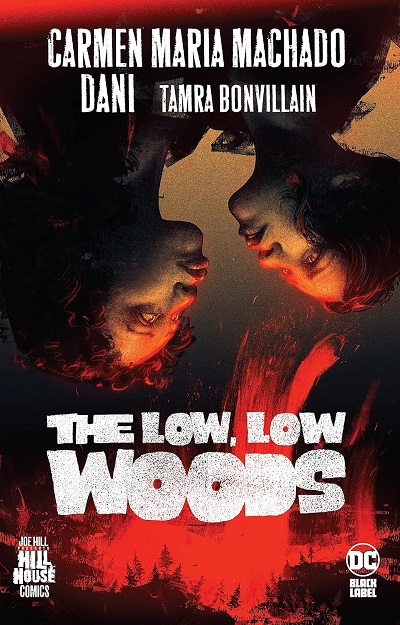
The low, low woods by Carmen Maria Machado
When your memories are stolen, what would you give to remember? Follow El and Vee as they search for answers to the questions everyone else forgot. Shudder-to-Think, Pennsylvania, is plagued by a mysterious illness that eats away at the memories of those affected by it. El and Octavia are two best friends who find themselves the newest victims of this disease after waking up in a movie theater with no memory of the past few hours. As El and Vee dive deeper into the mystery behind their lost memories, they realize the stories of their town hold more dark truth than they could've imagined. It's up to El and Vee to keep their town from falling apart...to keep the world safe from Shudder-to-Think's monsters.
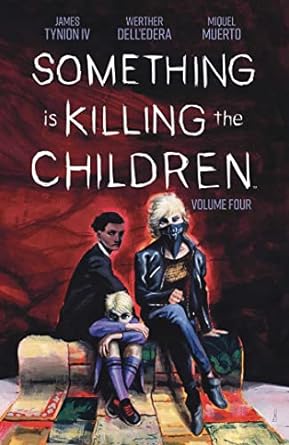
Something is killing the children by James Tynion IV and Werther Dell’Edera
Erica Slaughter went to hell and back in Archer’s Peak, but that may be nothing compared to the events that forged her at the House of Slaughter. What events brought Erica to the House of Slaughter? And what did she have to do to join the Order of St. George? Erica Slaughter’s origins are finally revealed in this volume of the Eisner Award-nominated series from GLAAD Award-winning author James Tynion IV (The Woods, Batman) and artist Werther Dell’Edera (Razorblades). Collects Something is Killing the Children #16-20.
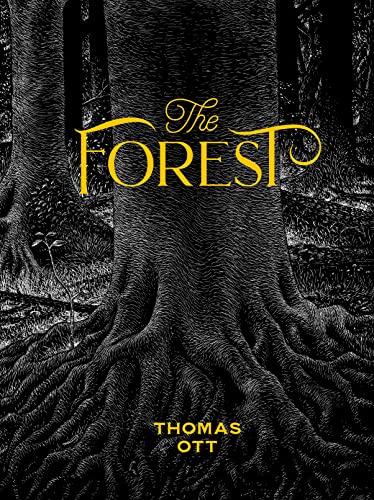
The forest by Thomas Ott
The Forest is a graphic novella told via twenty-five singular illustrations, without words, of which only Swiss artist Thomas Ott is capable. A young boy sneaks away from a family funeral and sinks into the forest depths, where he confronts man's greatest fear and must choose his path. Drawing with a technique called scratchboard, where a white surface is covered with a black layer and scratched away, Ott creates images out of negative space to harrowing effect. In Ott's hands, the medium becomes the perfect vessel for his eerie, horror-imbued morality tales. This gorgeous volume will be printed on heavy art paper with Pantone Black ink to best showcase every exquisite detail of Ott's virtuosic talent. Black-and-white illustrations throughout.
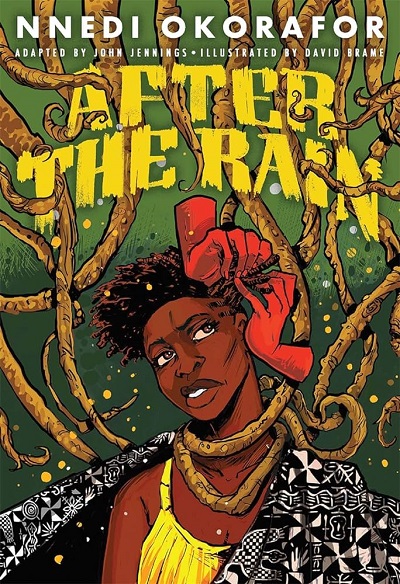
After the rain adapted from the short story "On the road" by Nnedi Okorafor ; written by John Jennings ; illustrated by David Brame ; lettering by Damian Duffy
The drama takes place in a small Nigerian town during a violent and unexpected storm. A Nigerian-American woman named Chioma answers a knock at her door and is horrified to see a boy with a severe head wound standing at her doorstep. He reaches for her, and his touch burns like fire. Something is very wrong. Haunted and hunted, Chioma must embrace her heritage in order to survive. John Jennings and David Brame's graphic novel collaboration uses bold art and colors to powerfully tell this tale of identity and destiny.
